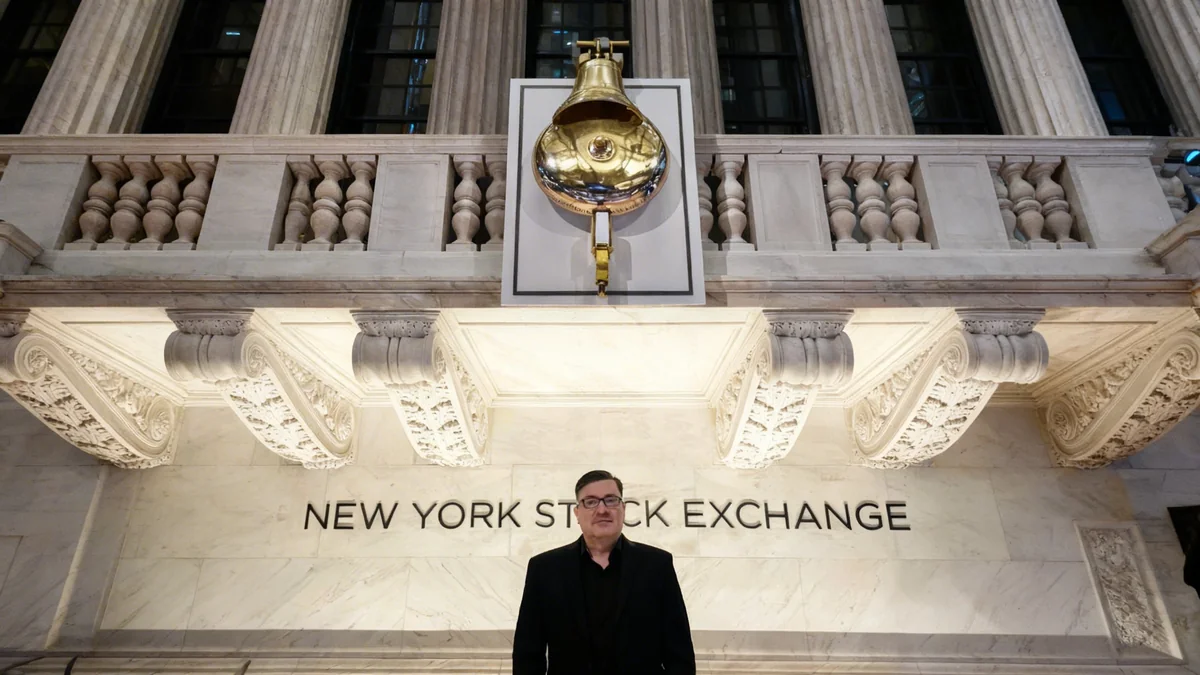Recent discussions on social media platforms reveal a sharp divide in retail investor sentiment concerning several major companies, including Disney and Boeing, alongside smaller tech-oriented stocks. The online chatter, sourced from popular investment forums, showcases a landscape where individual opinions range from strong bullish conviction to deep-seated skepticism, often influenced by financial personalities and broader cultural events.
These public forums serve as a real-time barometer for the hopes and fears of a growing segment of the market. The commentary highlights ongoing speculation around companies like Better.com (BETR) and Opendoor (OPEN), questions surrounding Disney's (DIS) brand strategy, and short-term price predictions for industrial giant Boeing (BA).
Key Takeaways
- Retail investor sentiment on social media platforms shows significant polarization for stocks like Disney, Boeing, and Better.com.
- The influence of financial commentators, such as Eric Jackson, is a prominent and debated topic among online traders.
- Discussions reveal that sentiment for consumer-facing brands like Disney is increasingly tied to political and cultural factors.
- Speculative, short-term trading remains a common theme, with users focusing on potential rapid price movements in volatile stocks.
The Evolving Role of Social Media in Trading
In recent years, social media has transformed from a simple communication tool into a powerful force in financial markets. Platforms like X (formerly Twitter), Reddit, and StockTwits have become virtual trading floors where millions of retail investors share ideas, research, and sentiment.
This trend accelerated significantly following the meme stock phenomenon of 2021. Events surrounding companies like GameStop and AMC demonstrated that coordinated online activity could generate substantial market volatility, challenging traditional institutional analysis. Today, tracking this online chatter has become a component of market analysis for both individual and professional traders.
The comments observed provide a snapshot of this dynamic environment. They show investors reacting not just to financial reports but also to news headlines, influencer opinions, and cultural shifts, creating a complex and often unpredictable layer of market influence.
Influence and Skepticism in the Tech Sector
A significant portion of recent online discussion has centered on smaller, more volatile stocks, particularly within the technology and finance sectors. The commentary often highlights the impact of well-known financial personalities.
The Eric Jackson Effect
Investor and commentator Eric Jackson was a focal point in discussions around Better.com ($BETR), a digital mortgage company. One user expressed strong confidence, stating they would follow Jackson's lead and projected a target price of over $100 for the stock.
This bullishness was directly contrasted by another user's critical post. This individual described what they called the "Eric Jackson formula," alleging a pattern of promoting low-float stocks to followers with claims of potential 100x to 1000x returns, often without detailed fundamental analysis.
"Eric Jackson formula: Find a low float stock, tell your followers on X it can go up 100-1000x (with no fundamental analysis as to why to support it). Immediately profit. Where is the SEC?"
This comment, which also tagged Opendoor ($OPEN), voiced concern over the practice and questioned the role of regulatory bodies like the Securities and Exchange Commission (SEC). This debate underscores a central tension in the world of social media investing: the line between influential analysis and potential market manipulation.
What is a Low-Float Stock?
A "low-float" stock refers to a company with a relatively small number of shares available for public trading. Because the supply of shares is limited, these stocks can experience extreme price volatility when buying or selling pressure increases, making them attractive to speculators but also carrying significant risk.
Cultural Currents Drive Disney Sentiment
For consumer-facing giants like The Walt Disney Company ($DIS), investor sentiment appears increasingly linked to broader cultural and political conversations. One user expressed a strong bearish position on the company's future, dismissing the idea that rehiring talk show host Jimmy Kimmel would win back subscribers.
The user suggested that any potential benefit would be outweighed by a loss of subscribers from conservative audiences, often referred to as the "MAGA crowd."
"Will any subscribers come back because Kimmel was put back on air? No," the user wrote. "The damage already done. Will they lose a whole ton more because of the MAGA crowd? Absolutely."
This perspective reflects a wider trend where corporate decisions related to content, marketing, and public figures are scrutinized through a political lens by a segment of consumers and investors. For a brand like Disney, which is built on mass appeal, navigating these cultural divides has become a significant business challenge that is now openly debated in investment forums.
Speculation Surrounds Industrial and Tech Stocks
Beyond specific controversies, general market speculation remains a powerful driver of online conversation. This is evident in comments regarding both established industrial companies and newer tech firms.
Boeing's Price Target
For aerospace manufacturer Boeing ($BA), the sentiment was straightforward and speculative. A user posted a simple question reflecting short-term optimism: "So are we going to see $225+ tomorrow?" This type of post is common in retail trading communities, focusing on immediate price targets rather than long-term valuation. It highlights the fast-paced, often momentum-driven nature of this market segment.
Retail Investor Market Share
According to data from VandaTrack, retail investors now account for a significant portion of daily trading volume in the U.S. stock market. While this figure fluctuates, their collective activity can have a measurable impact on stock prices, particularly for well-known companies and more speculative assets.
An Entry Point for COMP?
Similarly, a user commented on an unspecified company with the ticker $COMP, declaring it a "Perfect entry point!" and expressing a bullish outlook. While the company is not identified, the sentiment is clear: a belief that the stock is undervalued and poised for gains. This type of brief, conviction-based statement is a hallmark of social media investment platforms, designed to quickly convey a trading idea to a wide audience.
Together, these varied comments paint a picture of a retail investment landscape that is dynamic, fragmented, and heavily influenced by forces beyond traditional financial metrics. From the sway of online personalities to the impact of cultural debates, the modern investor is navigating a more complex world than ever before.





